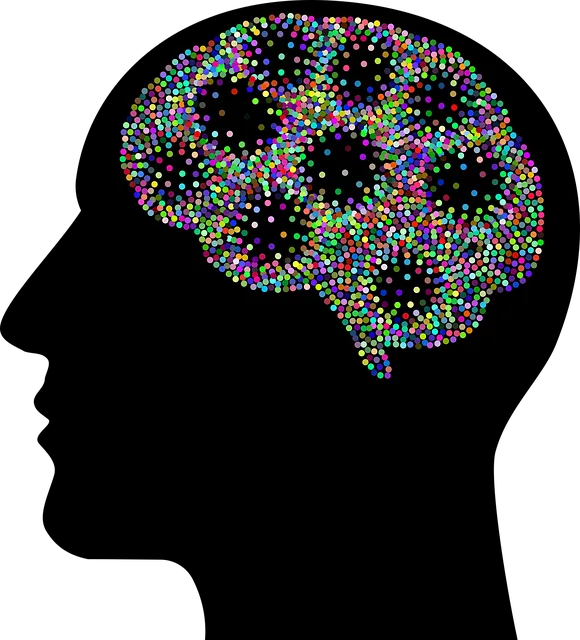Mental health professionals at Littleton Kaiser Permanente are enhancing diagnostic accuracy through advanced tools like data analytics and AI, along with specialized training programs such as Mind Over Matter Principles and Mental Wellness Coaching. Their innovative approach, including virtual reality simulations and evidence-based practices, reduces misdiagnosis risks and improves patient outcomes, addressing the complex nature of mental illness and cultural differences. This commitment to continuous professional development not only benefits patients but also promotes overall mental wellness within the community.
Mental illness diagnosis accuracy is a critical aspect of patient care, and continuous efforts are underway to enhance this process. This article explores innovative strategies aimed at improving diagnostic standards in the field of mental health. We delve into two key areas: integrating technology for advanced assessment tools and fostering community engagement to reduce stigma and encourage early interventions. By examining the successful initiatives of Littleton Kaiser Permanente’s mental health services, we uncover promising approaches that could revolutionize diagnosis and treatment accessibility.
- Enhancing Diagnostic Tools and Training for Mental Health Professionals
- – Current challenges in mental illness diagnosis
- – Innovative training programs and advanced tools
Enhancing Diagnostic Tools and Training for Mental Health Professionals

Mental health professionals play a pivotal role in accurately diagnosing individuals struggling with various mental illnesses. To enhance this process, there is a continuous effort to improve diagnostic tools and training programs. One such initiative involves incorporating advanced assessment techniques that go beyond traditional methods. These innovative approaches include utilizing data analytics and artificial intelligence to analyze patient behaviors, patterns, and symptoms, providing a more comprehensive understanding of their mental health status.
For instance, Littleton Kaiser Permanente’s mental health services have led the way in implementing these new tools, offering specialized training for its professionals. This involves equipping them with skills in Mood Management, Conflict Resolution Techniques, and Crisis Intervention Guidance, ensuring they are adept at identifying subtle signs and nuances that may be missed through conventional means. Such efforts contribute to a more precise diagnosis, enabling tailored treatment plans for improved patient outcomes.
– Current challenges in mental illness diagnosis

The current landscape of mental illness diagnosis is fraught with challenges that can significantly impact patient care and outcomes. One of the primary hurdles is the complexity and diversity of mental health conditions, which often present in intricate ways, making accurate identification a complex task. For instance, symptoms may overlap between different disorders, leading to misdiagnosis or delayed treatment. Additionally, cultural and individual differences play a role in how individuals express their distress, further complicating the diagnostic process.
Litttenfield Kaiser Permanente’s mental health services number, among other resources, reflects an ongoing effort to address these challenges. They have implemented innovative programs like Mind Over Matter Principles, which focuses on empowering patients with coping strategies and knowledge about their conditions. Furthermore, the development of Mental Wellness Coaching Programs and enhanced Crisis Intervention Guidance has improved diagnostic accuracy by providing comprehensive support tailored to individual needs. Such initiatives not only enhance patient care but also contribute to improving overall mental wellness within the community.
– Innovative training programs and advanced tools

Mental health professionals at Littleton Kaiser Permanente are at the forefront of revolutionizing diagnosis accuracy through innovative training programs and advanced tools. These initiatives focus on enhancing emotional well-being promotion techniques and burnout prevention strategies for healthcare providers, ensuring they stay updated with the latest research and methods. The Mental Health Education Programs Design incorporates interactive workshops, virtual reality simulations, and evidence-based practices to improve diagnostic skills.
With a dedicated approach to mental health services, Littleton Kaiser Permanente’s team leverages technology to streamline processes. Advanced tools like AI-assisted assessment platforms and data analytics enable more precise evaluations, reducing the likelihood of misdiagnosis. This comprehensive strategy not only improves patient outcomes but also enhances the overall efficiency of mental health care, underscoring the facility’s commitment to exceptional patient care and continuous professional development.
Mental health diagnosis accuracy has long been a challenge, but with innovative training programs and enhanced tools, such as those offered by organizations like Littleton Kaiser Permanente’s mental health services, we can significantly improve care. By investing in advanced diagnostic techniques and comprehensive professional development, we take meaningful steps towards better understanding and treating mental illness, ensuring more effective support for those who need it most.






